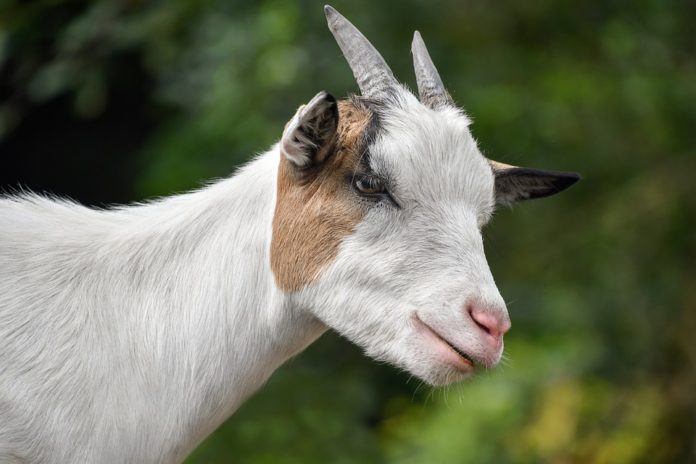There’s a lot more going on behind a goat’s freaky eyes than we may think. In a new study, goats are found as proficient face readers.
An international team of scientists shows that goats presented with pictures of human faces are more interested in a happy face than an angry face. This is noteworthy because goats, which have historically been raised for meat and milk, are not typically thought of as animals that live and work closely with human, unlike animals like dogs, cats, and horses.
The study suggests that goats seemed to have picked up a few human-reading tricks over their history as domesticated animals.
Alan McGelligott, Ph.D., an associate professor of animal behavior at the University of Roehampton in the United Kingdom said, “Our results will probably not surprise any farmers or those familiar with keeping goats. However, in general, goats (and other livestock) are often portrayed as being ‘stupid,’ and we hope that our research can result in improved animal care and welfare.”
For this study, scientists trained goats to come to them and snack from their hands. In a progression of resulting preliminaries, the scientists left the exploratory zone — essentially an improvised shed — and pivoted two sheets to uncover photographs of human faces imprinted on standard measured sheets of printer paper.
Each match of photographs was of the same individual that the goats had never met, on the other hand smiling and frowning. At the point when the goats were left to run allowed to explore the photos, they usually researched the smiling one first — as long as it was on the right.
Scientists suggest that domestication may have influenced the subjective capacities of farm animals more than we’ve beforehand suspected. Indeed, the trial including sets of smiling and frowning faces, when done on horses, has demonstrated that horses physiologically respond to photographs of angry human faces with elevated pulses and different indications of stress.
McElligott said, “I was surprised. I thought the goats might either ignore the images or maybe even try to chew on them. But the goats really seemed to stop and take time to investigate.”
Contrasted with horses, goats don’t have as much close contact with humans, notwithstanding being one of the most punctual animals tamed for domesticated animals. Be that as it may, this new investigation proposes that, regardless of living on the edges of human culture, goats have a remarkable capacity with respect to recognizing, at any rate, some essential human feelings.
Scientists have published their findings in the journal Royal Society Open Science.
